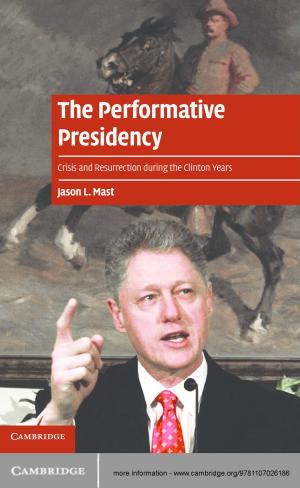Contesting the Postwar City
Working-Class and Growth Politics in 1940s Milwaukee
Nonfiction, History, Americas, United States, 20th Century| Author: | Eric Fure-Slocum | ISBN: | 9781107241794 |
| Publisher: | Cambridge University Press | Publication: | June 28, 2013 |
| Imprint: | Cambridge University Press | Language: | English |
| Author: | Eric Fure-Slocum |
| ISBN: | 9781107241794 |
| Publisher: | Cambridge University Press |
| Publication: | June 28, 2013 |
| Imprint: | Cambridge University Press |
| Language: | English |
Focusing on mid-century Milwaukee, Eric Fure-Slocum charts the remaking of political culture in the industrial city. Professor Fure-Slocum shows how two contending visions of the 1940s city - working-class politics and growth politics - fit together uneasily and were transformed amid a series of social and policy clashes. Contests that pitted the principles of democratic access and distribution against efficiency and productivity included the hard-fought politics of housing and redevelopment, controversies over petty gambling, questions about the role of organized labor in urban life, and battles over municipal fiscal policy and autonomy. These episodes occurred during a time of rapid change in the city's working class, as African-American workers arrived to seek jobs, women temporarily advanced in workplaces, and labor unions grew. At the same time, businesses and property owners sought to re-establish legitimacy in the changing landscape. This study examines these local conflicts, showing how they forged the postwar city and laid a foundation for the neoliberal city.
Focusing on mid-century Milwaukee, Eric Fure-Slocum charts the remaking of political culture in the industrial city. Professor Fure-Slocum shows how two contending visions of the 1940s city - working-class politics and growth politics - fit together uneasily and were transformed amid a series of social and policy clashes. Contests that pitted the principles of democratic access and distribution against efficiency and productivity included the hard-fought politics of housing and redevelopment, controversies over petty gambling, questions about the role of organized labor in urban life, and battles over municipal fiscal policy and autonomy. These episodes occurred during a time of rapid change in the city's working class, as African-American workers arrived to seek jobs, women temporarily advanced in workplaces, and labor unions grew. At the same time, businesses and property owners sought to re-establish legitimacy in the changing landscape. This study examines these local conflicts, showing how they forged the postwar city and laid a foundation for the neoliberal city.















